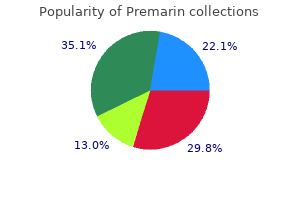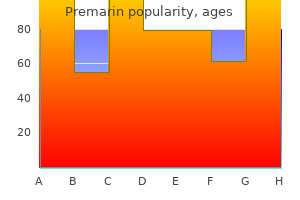Premarin
"Order premarin 0.625 mg otc, menstrual cramps 8 months pregnant."
By: Jay Graham PhD, MBA, MPH
- Assistant Professor in Residence, Environmental Health Sciences

https://publichealth.berkeley.edu/people/jay-graham/
The more you know about your specific research and teaching interests menopause young living cheap premarin 0.625 mg free shipping, the better; you will then be able to seek programs in the right field that have scholars whose interests match yours and can even apply to particular programs because you want to work with specific professors menstrual not flowing generic premarin 0.625 mg with visa. Doctoral programs are competitive but many doctoral students have their education paid for by fellowships and teaching and research assistantships. Human services worker: Countless entry-level positions in human services, mental health, and health care are available, carrying diverse titles such as case management aide, community outreach worker, life skills counselor, and gerontology aide. These workers may assist psychologists, nurses, and social workers in hospitals, mental health centers and facilities, and government agencies, performing such tasks as assessing client needs, conducting intake interviews, keeping case records, processing paperwork, teaching life skills, supervising clients in residential facilities, and leading group or family sessions. Professional Practice By "professional practice," we mean the application of knowledge of human development in order to optimize development. Opportunities for professional practice are even more varied than those for research and teaching. Some human service workers organize and lead activities at senior day care centers and residential facilities for elderly adults. Although many graduate programs in developmental psychology, human development, and family studies engage in real-world, policy-relevant research, applied developmental psychology programs make a point of it. Applied developmental psychologists may be trained to conduct research on practical problems such as improving early childhood education, supporting at-risk families, or reducing childhood injuries; assess the developmental status of infants and children; design, implement, and evaluate interventions aimed at preventing or treating problems such as alcohol and drug abuse, aggression, or abusive parenting; and consult or serve as expert witnesses in juvenile court proceedings, custody hearings, and the like (Kuther & Morgan, 2007). Compared to clinical psychologists, though, they tend to emphasize optimizing mental health and more often work with everyday problems of adjustment (for example, as a counselor in a college or university, company, or community mental health center). Now consider some additional possibilities for careers in counseling and therapy, some of which do not require doctoral-level education: Counselor, Psychologist, or Therapist Now consider some options if you want to provide counseling or psychotherapy to individuals or families as a state-licensed or certified psychologist. Wearing the title "psychologist" generally requires doctoral-level training in the United States. Subareas of counseling include school counseling (which may involve helping students who have academic or personal problems or, at the secondary school level, helping high school students plan their futures), vocational or career counseling, rehabilitation counseling (work in the vocational rehabilitation field helping adults with disabilities deal with their disabilities and find appropriate jobs), substance abuse or addiction counselors, mental health or community counselors, marriage and family therapists, genetic counselors, gerontological (aging) counselors, and more (see Bureau of Labor Statistics, 2006, on Counselors). Clinical Psychologist Clinical psychologists are trained to diagnose and treat individuals with psychological disorders. Some of them, such as child clinical psychologists and pediatric psychologists (who usually work in hospitals and other health care facilities), focus on infants, children, and adolescents; others (geropsychologists) specialize in problems of the elderly. Becoming a clinical psychologist normally requires earning a PhD or PsyD (the doctor of psychology degree, a more practiceoriented and less research-oriented degree than the PhD that often involves a culminating project rather than a research dissertation). Specialties include child, family, and school social work; medical social work; and mental health or clinical social work (Bureau of Labor Statistics, 2006). Clinical social workers are trained in diagnosing personal and family problems and in providing counseling and therapy. Mindful of the steady growth of the aging population, the Bureau of Labor Statistics (2006) notes that career opportunities for psychologists, counselors, and social workers with training in gerontology are expanding. Our society clearly needs more individuals in a variety of disciplines and professions who care about and have expertise in aging. Other allied health professions such as speech therapy, physical therapy, and occupational therapy also allow for specialization in particular age groups and type of problems. Other Options Finally, we need an "Other" category to say that individuals with training in developmental psychology, counseling, and other human development fields land in surprising places. Many people who enter the occupations we have discussed here advance by becoming administrators; for example, a teacher may become a principal, a psychologist, counselor, or social worker may become the director of a treatment facility or human service agency. People with training in human development also find their way into business and industry. Many also work as selfemployed consultants, offering help to agencies, organizations, and businesses in areas in which they have expertise. We hope this is enough to get you thinking and dreaming-and, better yet, taking concrete steps now to gain the knowledge, skills, and experience that will help you formulate and realize your dream. We are confident that the need for individuals who understand the complexities and marvels of life-span human development and can steer it in healthy directions will remain strong as long as humans develop and age.
Many of us are clueless about how to support bereaved friends and colleagues-about how to find the right words pregnancy 4 months order premarin 0.625 mg without prescription, whether in person or in sympathy cards women's health center of york generic premarin 0.625mg on-line, about how to provide comfort. Bereaved individuals report that they are helped most by family and friends who say Sensitive social support can make all the difference to the they are sorry to hear bereaved. Because so many of us have no idea oriented coping; they take energy and resources that elderly widows in poor health, especially those living in poverty with little social support, may not have (Hansson & Stroebe, 2007). By taking into account the person who has experienced a death, the nature of the death, and the context surrounding it, we can put together a profile of the individuals who are most likely to have long-term problems after bereavement. These individuals have had an unfortunate history of interpersonal relationships, perhaps suffering the death of a parent when they were young or experiencing insecurity in their early attachments. They have had previous psychological problems and generally have difficulty coping effectively with adversity. The person who died is someone on whom they depended greatly, and the death was untimely and seemingly senseless. Finally, these high-risk individuals lack the kinds of social support that can aid them in overcoming their loss, and they are burdened by multiple stressors. Bereavement and Human Development the grief work perspective on bereavement has tended to put the focus on the negative side of bereavement-on the damaging effects of loss and the need to "recover" from "symptoms" of grief. As you have seen, however, psychologists are coming to appreciate that bereavement and other life crises also have positive consequences and sometimes foster personal growth (Davis & Nolen-Hoeksema, 2001; Tedeschi & Calhoun, 2004). Granted, it can be a painful way to grow, and we could hardly recommend it as a plan for optimizing human development. Still, the literature on death and dying is filled with testimonials about the lessons that can be learned. Many bereaved individuals believe that they have become stronger, wiser, more loving, and more religious people with a greater appreciation of life (Tedeschi & Calhoun, 2004). Many widows master new skills, become more independent, and emerge with new identities and higher self-esteem, especially those who depended heavily on their spouses and then discover that they can manage life on their own (Carr, 2004; Lopata, 1996). A mother whose infant died said it all: "Now I can survive anything" (DeFrain, Taylor, & Ernst, 1982, p. So perhaps it is by encountering tragedy that we learn to cope with tragedy, and perhaps it is by struggling to find meaning in death that we come to find meaning in life. Summing Up All deaths in the family, including the death of a partner, have the potential to cause emotional damage and to alter the family system, although many widows and widowers are resilient. Recent research challenges the grief work perspective, which holds that grieving involves experiencing and working through painful emotions and breaking the bond to the deceased. Prolonged grief is especially likely among individuals who have insecure attachment styles or ineffective coping skills; who had close relationships with loved ones who died senselessly; and who lack social support, face additional stressors, or both. Hospices are part of a larger movement to provide palliative care, care aimed not at curing but at meeting the physical, psychological, and spiritual needs of patients with incurable illnesses (Shannon, 2006). Attempts to cure the patient or prolong his life are deemphasized (but death is not hastened either). Many people have misconceptions about what is normal and what is abnormal when it comes to grieving, as this chapter has illustrated. Identify two such misconceptions and, using relevant research, show why they are just that-misconceptions. What about her and her situation might account for her resilience in the face of death Hospice leaders point to suggestive evidence that patients have less interest in physician-assisted suicide when they have access to hospice care and their pain is better controlled (Foley & Hendin, 2002). Still, many signs suggest that hospital personnel continue to place emphasis on curing terminally ill patients and keeping them alive rather than on controlling their pain and allowing them to "die with dignity. A hospice is a program that supports dying people and their families through a philosophy of "caring" rather than "curing" (Connor, 2000; Saunders, 2002). Cicely Saunders (2002), put it this way: "I remain committed to helping people find meaning in the end of life and not to helping them to a hastened death" (p. And an evaluation of hospice facility care, athome hospice care, and conventional hospital care in Great Britain found that hospice patients spent more of their last days without pain, underwent fewer medical interventions and operations, and received nursing care that was more oriented to their emotional needs (Seale, 1991). The hospice approach may not work for all, but for some it means an opportunity to die with dignity, free of pain and surrounded by loved ones.

Because such memory-training programs have not always been successful menstruation quran cheap premarin 0.625mg free shipping, these researchers attempted to increase motivation through encouragement and praise breast cancer generic premarin 0.625 mg amex. They even included training in metamemory: They made sure children understood the rationale for the sorting strategy, knew when it could be used, and could see firsthand that it could improve their performance. These children did virtually no sorting of items to be learned before they were trained, but they did a good deal of it after training, even 7 days later. They also outperformed untrained control children on measures of recall, but the gains in recall were fairly small compared with the much larger gains in strategy use. This discrepancy between gains in strategy use and gains in recall performance shows that these young children experienced utilization deficiencies: They could not derive full benefit from the memory strategy they were taught, possibly because they did not have the working-memory capacity to carry out the strategy. Most adults, at least if they live to an advanced old age, may experience some loss of basic processing resources. However, they may also have developed specialized knowledge and strategies that allow them to compensate for these losses as they carry out the everyday cognitive activities most important to them (Baltes, Smith, & Staudinger, 1992). Problem Solving and Aging You know that problem-solving skills improve steadily from early childhood through adolescence, but what becomes of them in adulthood On the one hand, you might expect to see a decline in problem-solving prowess paralleling declines in learning and memory performance. On the other hand, if adults increase their knowledge bases and develop expertise as they age, might not older adults outwit younger novices on many problem-solving tasks Familiar versus Unfamiliar Tasks When given traditional problem-solving tasks to perform in the laboratory, young adults typically perform better than middleaged adults, who in turn outperform older adults (Denney, 1989). The soundest problem-solving strategy is to ask constraint-seeking questions-ones that rule out more than one item (for example, "Is it an animal Young children and older adults tend to pursue specific hypotheses instead ("Is it a pig However, if the task is altered to make it more familiar (for example, through the use of playing cards as stimuli), then older adults do far better. The familiarity of the material allows them to draw on their knowledge base to solve the problem. Thus, older adults are capable of using effective problem-solving strategies but do not use them in some contexts, especially when given unfamiliar tasks in a laboratory. What if adults are asked to deal with real-life problems such as grease fires in the kitchen, family squabbles, or refrigerators that break down in the middle of the night Nancy Denney and Kathy Pearce (1989) asked elderly adults to help them devise everyday problems that would be meaningful and familiar to older individuals. One problem was to generate ideas about how a 65-year-old recently widowed woman could improve her social life; another was to advise an elderly couple living on Social Security what to do when they were unable to pay their heating bill one winter. On these everyday problems, performance increased from early adulthood to middle age and declined in old age. Other findings echo this one: When given everyday problems to which they can apply the expertise they have gained through experience, middle-aged adults often outperform young adults. Elderly adults sometimes equal and sometimes do worse than young and middle-aged adults; either way, they show smaller deficits on the everyday problems than they do on unfamiliar problems in the laboratory (Berg & Klaczynski, 1996; Marsiske & Willis, 1995). Ultimately, declines in basic capacities may limit the problem-solving skills of many elderly adults, not only in the laboratory but also in real life (Denney, 1989; Kasworm & Medina, 1990). You should bear in mind, however, that cognitive competence among older adults varies widely because of differences in health, education, experience, and so on. Selection, Optimization, and Compensation Some cognitive researchers believe that older adults may approach problem solving differently than younger adults. But the solutions generated by older adults tend to be more goal-focused and selective, emphasizing quality over quantity (Marsiske & Margrett, 2006). When faced with a broken water pipe in the middle of the night, an older couple may generate one solution-call their grown son who lives down the street.
Cheap premarin 0.625mg online. What are common pelvic health concerns in menopausal women? | Norton Women's Care.
Diseases
- Nasodigitoacoustic syndrome
- Williams syndrome
- Fuhrmann Rieger De Sousa syndrome
- Brachydactyly Smorgasbord type
- Idiopathic adolescent scoliosis
- Dwarfism tall vertebrae

References:
- https://www.medschool.lsuhsc.edu/emergency_medicine/docs/Basic%20Mecahnical%20Ventilation-%20Critical%20Concepts-%20pulmonary.pdf
- http://download.poultryandmeatprocessing.com/v01/SciPoultryAndMeatProcessing%20-%20Barbut%20-%20v01.pdf
- https://vetmed.oregonstate.edu/sites/vetmed.oregonstate.edu/files/year_4_student_manual_2019_final_0.pdf
